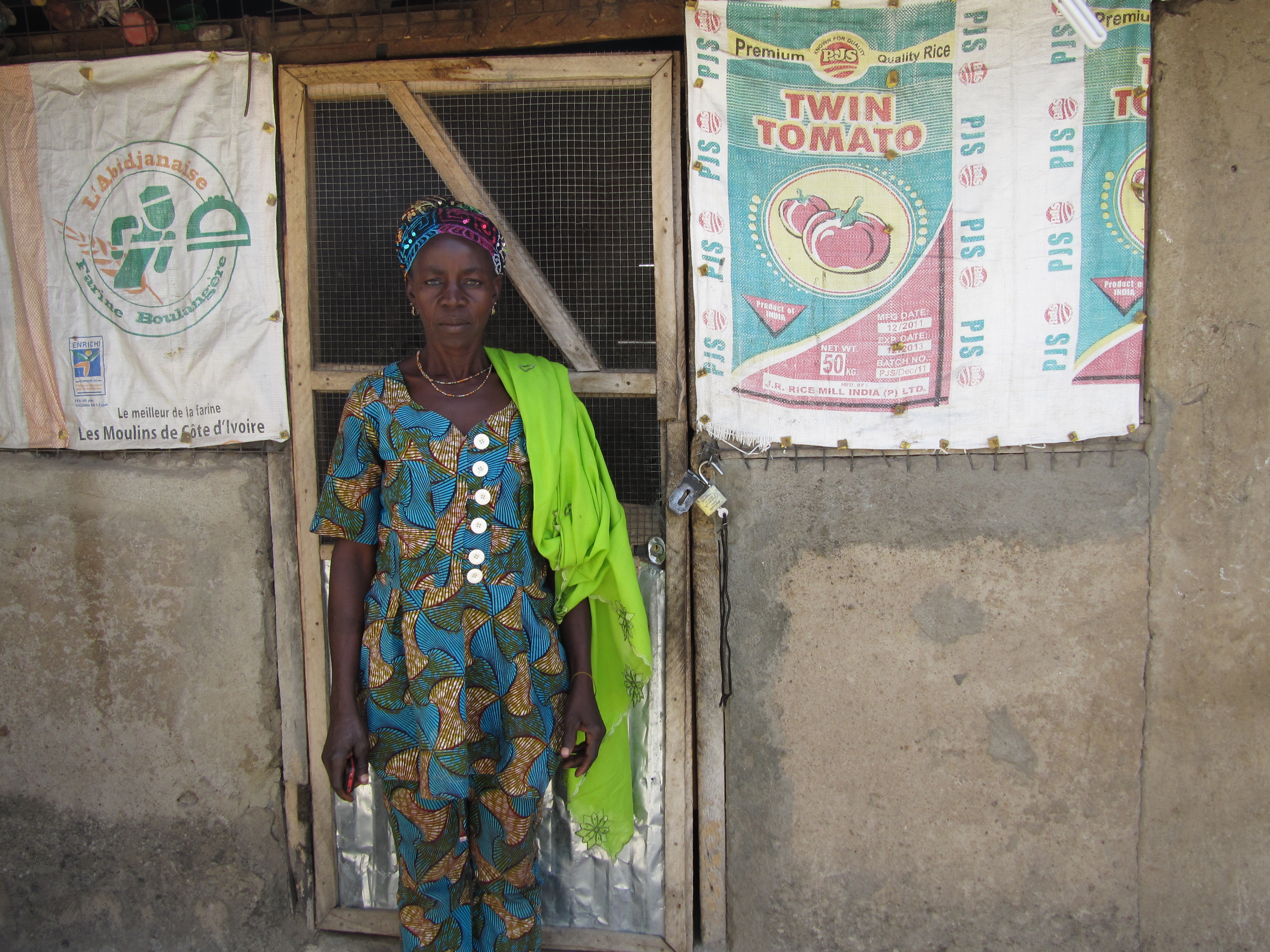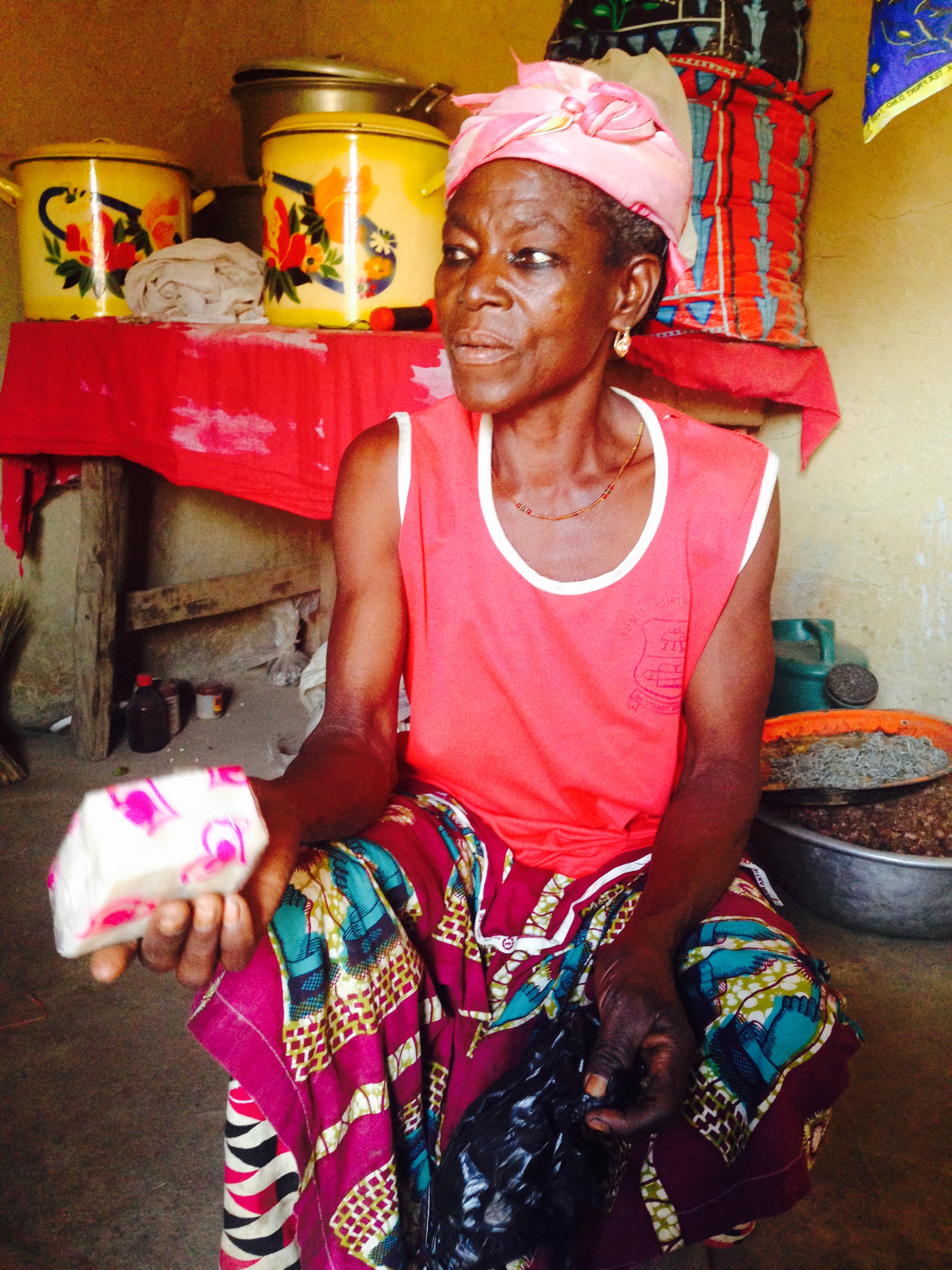African communities have the highest proportion of female entrepreneurs in the world
Africa has the highest proportion of female entrepreneurs in the world. To celebrate Global Entrepreneurship Week, respected charity TREE AID asks: 'What drives these women to start their own business, and what can European business owners learn from their African counterparts?'
Research has found that nearly 25% of females in Sub-Saharan Africa are engaged in early stage entrepreneurial activity, compared with just over 5% in Europe*, so what are the factors driving this surge in small business in one of the poorest areas of the world? TREE AID Chief Executive John Moffett explains:“For villagers in the drylands of Africa, life is tough, and especially so for women. Every two minutes a child dies from hunger, and hunger and malnutrition kill more people every year than AIDS, TB and malaria combined. In many of these rural communities it is often seen as a woman's responsibility to manage her family's health and nutrition and to cope with the uncertainty about how they will eat. In the hungry months when food is scarce, this could mean she will go without food all day to ensure her husband and children get a meal. However if women are given the skills and resources to start a small enterprise, they have the opportunity to save money and feed their families when the crops fail or food is scarce".
TREE AID work with people living in extreme poverty in Africa to earn an income for basic needs like food, education and health. They help villagers use tree products such as shea butter, mango and honey to make the money they desperately need, by providing business skills training, improving production methods and creating opportunities to work together.
Meet two African female entrepreneurs
Memmenatu lives in one of the poorest parts of Ghana, where growing enough to eat is hard, and getting an income is harder still. Memmenatu says that most of her life has been a struggle:
“For parts of the year, my children and grandchildren may only have one meal a day."
Jalia Dimmie, from Welembele, never went to school, but the extra money she has earned from her business ventures has enabled all 6 of her children to go to school, a rarity in rural Ghana.
“When other people see the benefits to my family, they ask how they can do the same too," she says.
In both communities, TREE AID worked closely with the villagers to find out what they really wanted – and now daily life has changed beyond recognition. Together with other women in their respective villages, both Memmenatu and Jalia have set up enterprise groups, enabling them to process and sell shea butter, a popular ingredient in moisturisers and soap, at local market.
So what are the key lessons that we can learn from these women building successful enterprises in some of the harshest conditions in the world?
Working in cooperation
Shea butter, known as West Africa's 'gold', is made by roasting and pounding the nuts to a paste, which is then repeatedly washed. The process is labour intensive, and the women work together in every aspect of the production. TREE AID helped the women in both Memmenatu & Jalia's villages to set up enterprise groups, teaching them how to process shea butter, which they make into soap to sell. Working together is more efficient and more rewarding. The women can share resources, socialise and exchange ideas as they work. The change has been dramatic. In Memmenatu's village, the extra income means she now always has enough food for her family to eat at least twice a day.
Memmenatu says:
“Without trees we would all die. If TREE AID had not started this project and shown us how to make money from trees, we would not have been able to continue living here."
Taking opportunities
Research** has also found that fear of failure is far lower in some African communities than in Europe, 23.8% compared to 40.7%. “Many of these women have lived through extreme poverty", explains Moffett, “but their entrepreneurial spirit and desire to look after their children means they are keen to take every opportunity available to them." When TREE AID first approached villagers to discuss setting up a project, they could clearly see the benefits such an enterprise would bring for their families and for the village as a whole.
“Thanks to TREE AID I can afford to send all of my children to school," says Jalia.“I've also set up other businesses using the skills that TREE AID taught me. I would never have been able to do any of these things without TREE AID's project. I can now stand on my own two feet and plan for the future."
And the work doesn't stop there. In the drylands of Africa hunger and malnutrition continue to take hundreds of lives every day. TREE AID are asking people to support the Grow Hope appeal by fundraising or making a donation, helping other budding entrepreneurs just like Memmenatu and Jalia get the skills they need to grow trees and start their own businesses too.
For more information about the Grow Hope appeal and to make a donation visit www.treeaid.org.uk/growhope/
-Ends-
*Source: Global Entrepreneurship Monitor 2014 - http://www.gemconsortium.org/report pg 46
** Source: Global Entrepreneurship Monitor 2014 - http://www.gemconsortium.org/report pg 32-33
Press release distributed by Pressat on behalf of TREE AID, on Wednesday 4 November, 2015. For more information subscribe and follow https://pressat.co.uk/
Tree Aid Tree Aid Entrepreneur Grow Hope Grow Hope Appeal Global Entrepreneurship Week African Entrepreneur Female Entrepreneur Business & Finance Charities & non-profits Environment & Nature Farming & Animals Women & Beauty
You just read:
African communities have the highest proportion of female entrepreneurs in the world
News from this source:




